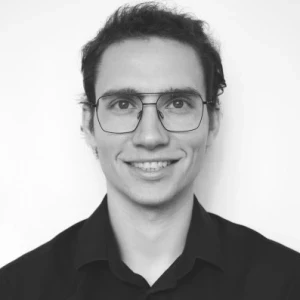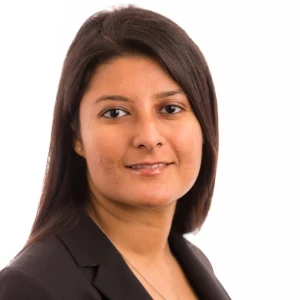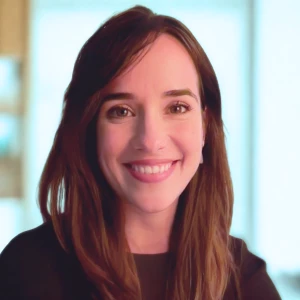Hi guys,
I am invited for a phone interview with McKinsey. Does anybody have any experience with this phone interview? Kind regards, Ana
Hi guys,
I am invited for a phone interview with McKinsey. Does anybody have any experience with this phone interview? Kind regards, Ana


Yes. The case has the same kind of structure as a normal McK interview, but without graphs since it’s via phone. So the interviewer will give you the case problem (in my case it was market entry) and you have to approach it like you would a normal case, so first of all elaborate your structure how to approach it (issue tree). You will have to do some calculations, but they are really not so difficult. And then at the end you have to give the recommendation and support it with the arguments as the closing statement, also including risks. As you see it’s really like the normal kind of case but simpler I would say. It is a bit weird not being face to face to the person, so maybe practice as well such kind of setting to get used to it. Hope it goes well!

Hi!
First question would be to ask whether this is a "phone screening" or a "phone interview."
Phone Screen:
-Practice your quick 2-minute resume/background elevator speech while pointing out highlights specific to the exact position you applied for (strategy, implentation, operations emphasis and similarities)
- Establish rapport and demonstrate positive professional but (airport test) enjoyable personality. Be yourself!
-Prepare for potential or possible fit questions. Mckinsey's fit criteria is clearly displayed on their website
Phone Interview:
-If a case interview, prepare for a 30 min interviewer-led case interview in which there are a number of different resources on this site for that
-If a technical interview, prepare to answer in heavy detail about experiences on your resume using either a STAR, PARADE, or CAR technique
Good luck!

Hi Ana,
Process is the same. Just make sure to put extra attention to communication, structure and details while you work on your logic and maths. Not having support materials to draw your though process as when you are face to face might be a challenge. Good news is that recruiters are properly trained for this.
Best,
Alberto
its cake. it will be given by a mckinsey alum, and is typically going to be one of the simplest cases you'll ever do... probably simpler and quicker than any of the ones here. its simply there to weed out people who aren't going to advance early in the process without going through the trouble of flying them out, having current managers talk to him/her, etc.

Hi Julian
phone interviews indeed are a bit different from face-to-face ones on the communication side; below you can find some tips that may be useful for them:
# 1. Put all the material that may be interesting for you to look during the interview (structures, tips for fit part, etc) attached to the wall in front of you – in this way you do not have to look for information on the go
# 2. Go the extra mile in the case when presenting what you think. This is important in face-to-face interview, but even more in phone interviews where the interviewer cannot see you or your notes. In short, this implies:
# 3. Smile – although you are over the phone, it is shown that smiles are perceived by people also in this way, and show positive attitude
Fit part and cases are similar to the standard ones. For the case, it may be slightly easier to get a market sizing, as this is simpler to deliver and follow over the phone.
Best,
Francesco
Phone interviews can be both easier and tougher than in-person interviews. As you point out, you don’t have the opportunity to read the body language or watch what the interviewer is doing (e.g., taking notes). From the interviewer standpoint, I find it much harder to do phone interviews because I can’t:
I give you the interviewer point-of-view so that you can try to work backwards on what you should and should not do on the phone interview. Here are a few tipos:
Hope that helps!

Hi Ana Flavia,
phone interviews are a bit different compared to face-to-face ones on the communication side. Good internet connection, being properly dressed and a quite environment are definitely required; below you can find some further tips:
# 1. Put all the material that may be interesting for you to look during the interview (structures, tips for fit part, etc) attached to the wall in front of you – in this way you do not have to look for information on the go
# 2. Go the extra mile in the case when presenting what you think. This is important in face-to-face interview, but even more in phone interviews where the interviewer cannot see you or your notes. In short, this implies:
# 3. Smile – although you are over the phone, it is shown that smiles are perceived by people also in this way, and show positive attitude
Fit part and cases are similar to the standard ones. For the case, it may be slightly easier to get a market sizing, as this is simpler to deliver and follow over the phone.
Best,
Francesco

Hi there,
to also shed some light for following readers: I recently had something quite similar. In my case, it was an invitation to do participate in a "trial case interview" at McKinsey & Company.
I was being told that this is a possibility for me to assess what to expect in the real interview, but I also heard from a lot of friends that this might be a pre-assessment of your skills in order for them to assess whether you are "worth the consultant's time" in the real one, or not.
I suppose that you are applying in Germany? I heard from a couple of friends that they had a phone interview like yours, and I also talked to a Recruiter of McKinsey & Company in Germany. They told me that this is a "real round 1 interview" and you will be invited to the in-person interviews, if you can perform as expected.
So I can recommend to learn and act, as if this is the real one.
However, in any case: Relax and sit back, since this one will be in a comfortable atmosphere.
Sincerely, B
Hey Lisa,
I know a lot about phone interviews @ McK.
Pls let me know if you want my help.
Hi Neil,
Wondering if you could please share your experience regarding the phone case interview? Key questions I would be interested in would be:
- Type of case you got (Market entry, profitability, etc)
- Level of difficulty relative to the sample cases on the McKinsey website
- Best practice advice and tips on preparation
Thanks,
Daniel

Dear Julian!
Firstly, prepare the place for the call. A quiet environment is a must-have. Pay attention to what the interviewer will see in the background (sometimes when I do coaching via Skype with you I can see really strange stuff;) Prepare on the wall in front of you the material you might need (structures, tips for a fit part, etc) so you won't have to look for it during the interview
Prepare your own questions. Relevant questions at the end are a great way to show your interest in the company and get additional points. This is particularly important in a phone/video interview, as the interviewer will naturally connect less with you.
Smile during the call. Even if they cannot see you it's a good way to show energy
Use numbers when communicating your structure. This applies to both face-to-face and video interviews, but it is particularly important for the video ones. Good communication will make it easier for the interviewer to follow you since he/she cannot see you. As an example: “In order to help our client, I would like to focus on three main areas. First, I would like to focus on [FIRST TOPIC], secondly on [SECOND TOPIC], finally on [THIRD TOPIC]. Let me start with the first one."
Hope this helps and speak soon,
Best,
André

Dear Ana!
Below you can find some tips for the call:
● Prepare the place for the call. A quiet environment is a must-have. Pay
attention to what the interviewer will see in the background (sometimes when I do
coaching via Skype with you I can see really strange stuff;) )
● Prepare on the wall in front of you the material you might need (structures,
tips for a fit part, etc) so you won't have to look for it during the interview
● Prepare your own questions. Relevant questions at the end are a great way to
show your interest in the company and get additional points. This is particularly
important in a phone/video interview, as the interviewer will naturally connect less
with you.
● Smile during the call. Even if they cannot see you it's a good way to show
energy
● Use numbers when communicating your structure. This applies to both face-
to-face and video interviews, but it is particularly important for the video ones.
Good communication will make easier for the interviewer to follow you, since
he/she cannot see you. As an example:“In order to help our client, I would like to
focus on three main areas. First, I would like to focus on [FIRST TOPIC],
secondly on [SECOND TOPIC], finally on [THIRD TOPIC]. Let me start with the
first one."
Hope this helps and speak soon,
Best,
André














